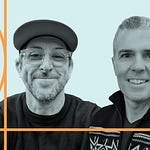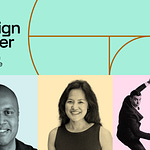Guy Kawasaki has certainly had a remarkable career. From gaining popularity as the Chief Evangelist at Apple for the Macintosh computer in the 1980’s, to authoring fifteen books, to hosting the Remarkable People podcast, Guy has made a habit of trying new things During our conversation with Guy, we talk about why it’s important to be able to make a sale, no matter what your role is.
\We discuss the start of his career at Apple, and how he got developers to write software for a relatively unknown platform. And we ask his advice for people just getting started in their own careers, whether that’s in tech, writing, or entrepreneurship.
Bio
Guy Kawasaki is the chief evangelist of Canva and the creator of Guy Kawasaki’s Remarkable People podcast. He is an executive fellow of the Haas School of Business (UC Berkeley), and adjunct professor of the University of New South Wales. He was the chief evangelist of Apple and a trustee of the Wikimedia Foundation. He has written Wise Guy, The Art of the Start 2.0, The Art of Social Media, Enchantment, and eleven other books. Kawasaki has a BA from Stanford University, an MBA from UCLA, and an honorary doctorate from Babson College.














